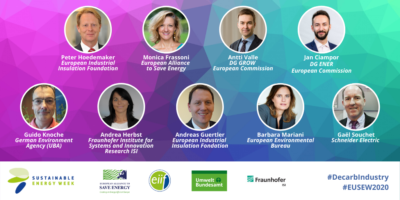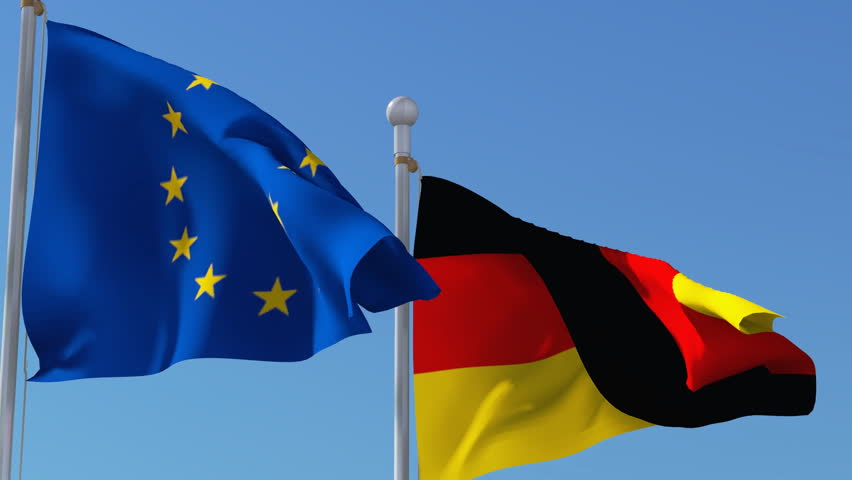Recover Europe? Renovate buildings!

by Peter Robl, Public Affairs Manager Eastern Europe at Knauf Insulation & Martin Hojsík, Member of the European Parliament
This op-ed was published on CEEnergyNews
Building renovation needs the EU’s support and will help recover the economy in return. European leaders need to deliver efficient incentives soon.
Building renovation is a key element of achieving Europe’s 2030 and 2050 decarbonisation targets. The COVID-19 related quarantine and the current summer heatwaves across Europe have underlined the importance of quality and energy-efficient buildings to deliver safe and healthy housing and workplaces. Europe needs to increase the generally low renovation rate, yet the economic impacts of the COVID-19 crisis will further push the rate down.
The slowdown in renovation activity will result from a decline in investor confidence. Who would not delay insulation of their home by a year or two, when they had lived without insulation for the last ten? Who would provide a loan for renovation if repayments are not secured?
Construction output tends to suffer from economic hick-ups longer and harder than the rest of the economy. After the crisis in 2008, GDP and industrial production returned to growth as early as 2010 in many countries, while construction output continued to fall year after year until 2014 (as illustrated by the Slovak case – see chart below).

European leaders have the power to help economic recovery, decarbonisation and housing quality of EU citizens at the same time. Delivering efficient incentive mechanisms aimed at building renovation and delivering them soon is required.
They have plenty of opportunities. Many countries struggle to manage spending from the current cohesion programs (2014 – 2020) in a number of areas. Re-allocating the funds to building renovation programs where demand is high is a sensible solution and an alternative to leaving the money on the ground. Swift finalisation of the MFF discussions will enable Member States to seal Partnership Agreements and launch new Cohesion funding (2021 – 2027) without much delay. The Next Generation EU fund intends to help Europe with green and digital transitions and should, therefore, include programs aimed at building renovation.
Lessons learned from previous periods need to be taken on board to ensure good results. Visegrad experts have pulled their 15 recommendations on more efficient use of the 2021-27 Cohesion Funds that apply to any other EU or national funding, too. Experts call, among other things, for a better reflection between allocation and investment need. They also say that “more developed regions” need access to the funding, too – building owners, both public and private, need to be motivated to perform a renovation and to perform it with higher ambition and quality, regardless of how developed their region is. Moreover, they suggest excluding renovation from state aid rules and streamlining public procurement to a lean and effective process as this would increase the renovation uptake.
But are the Central and Eastern European Member States actually ready to deliver building renovation? In fact, and contrary to their climate policy attitudes, they are. Just a few examples. Romania is just about to launch subsidy programs for both single-family homes and public buildings. Bulgaria has a successful track record with a program for a multi-apartment building renovation that is now on hold due to budget issues. In Slovakia, renovation projects of municipal buildings worth more than 100 million euros are ready as they have applied but not received subsidies from an EU Fund program. Poland is starting a Clean Air Program aimed to combat air pollution. The Czech Republic has a positive experience with their New Green Savings, a program delivering quality renovation of 8,000 single-family homes a year. Croatia seeking funding for multi-apartment and public building renovation programs, as well as for buildings in Zagreb damaged by the March 2020 earthquake.
Supporting the quality renovation of buildings delivers several benefits. It goes directly to builders, the citizens. Not only does it control the damage to the decline of construction output, but also helps recover the economy. It turns private savings into investments and economic activity. It triggers domestic demand that is catered to by small local construction companies across all regions of Europe evenly. Therefore, renovating buildings is a key tool to support the EU’s socio-economic recovery after this crisis, and leaders and governments should act to make this happen.




